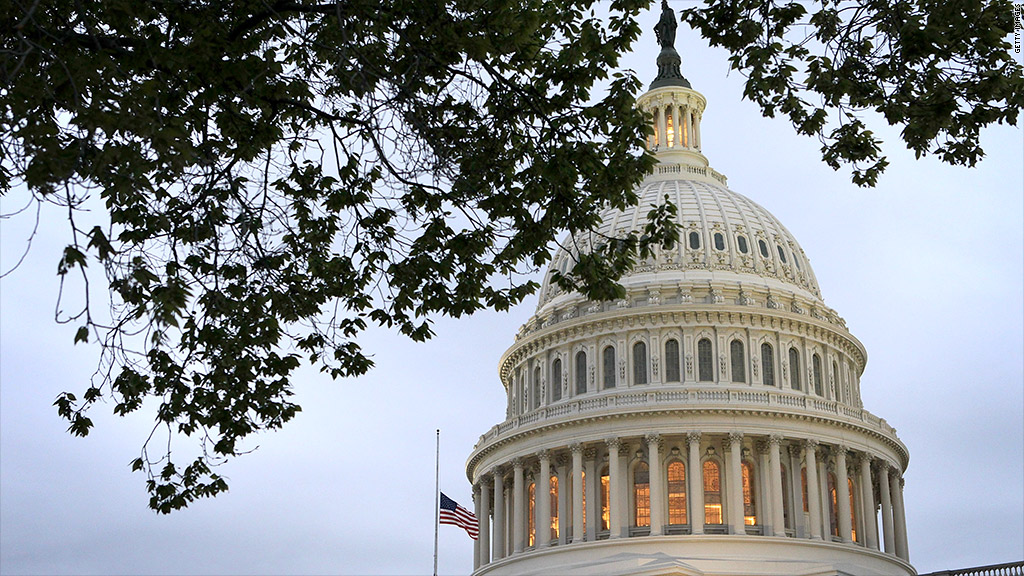
If you enjoy the spectacle of lawmakers fruitlessly fighting over the budget, then you're in luck. Congress is expected to have even more time to chase its tail this summer before it must do something concrete -- raise the country's legal debt limit.
If Congress wanted to go by the book, it would do so in May, when the country's borrowing is expected to approach the debt ceiling.
But lawmakers expected to have about two months of wiggle room after that point since Treasury can use "extraordinary measures" to keep borrowing just below the legal limit. Such measures include temporarily not reinvesting federal workers' retirement savings in short-term bonds.
Now, however, thanks to higher-than-expected revenue and lower spending, the real deadline for raising the debt ceiling will come later than most people believed -- most likely either early September or early October, according to a new analysis by the Bipartisan Policy Center.
If the Center's estimates are correct, Congress may well be forced to do two things at once -- both pass an increase to the debt ceiling and approve funding for fiscal year 2014, which starts Oct. 1.

But the road to Oct. 1 will be bumpy. The budget process is as tangled as ever on Capitol Hill. The Senate and House have each passed their own budget but they're far apart from each other and there's no plan yet to negotiate the differences.
House Republicans, meanwhile, will expect something in return for agreeing to raise the ceiling -- either significant spending cuts, moves toward entitlement reform or a guarantee of tax reform.
And there is still little agreement on what to do about the automatic spending cuts that went into effect on March 1 because lawmakers couldn't come up with a more sensible plan.


